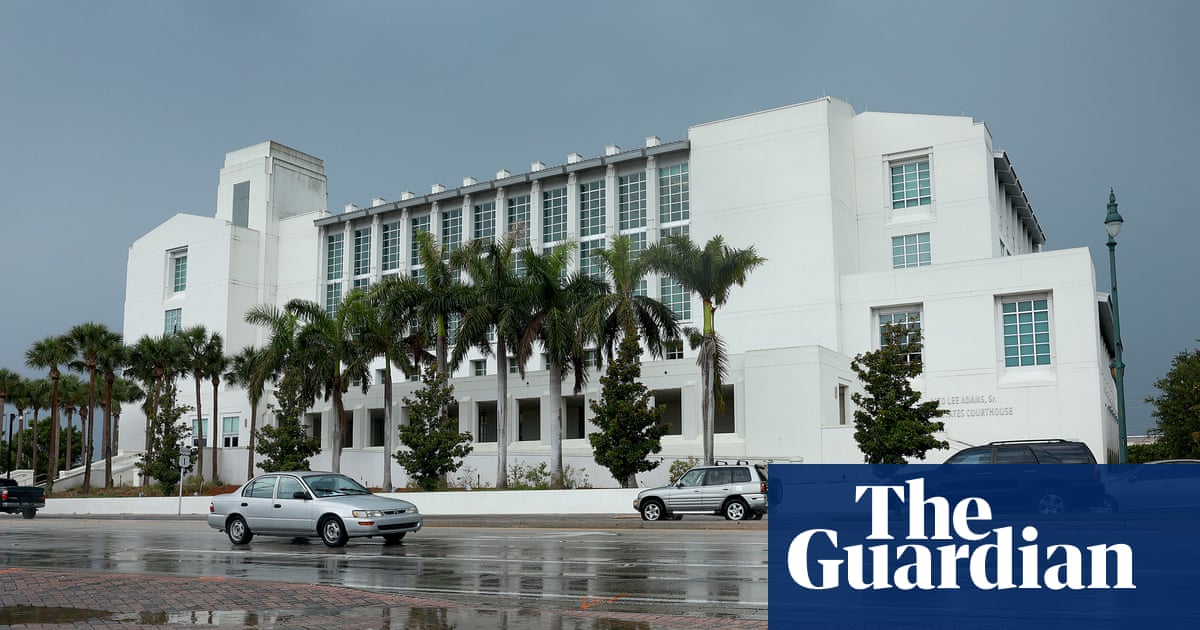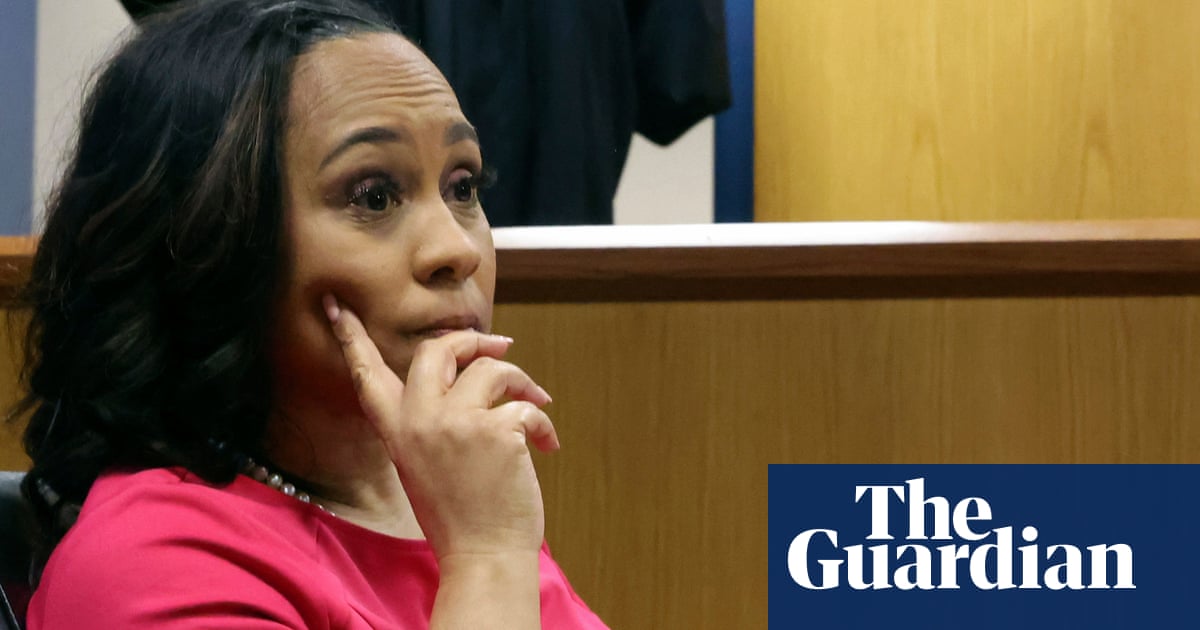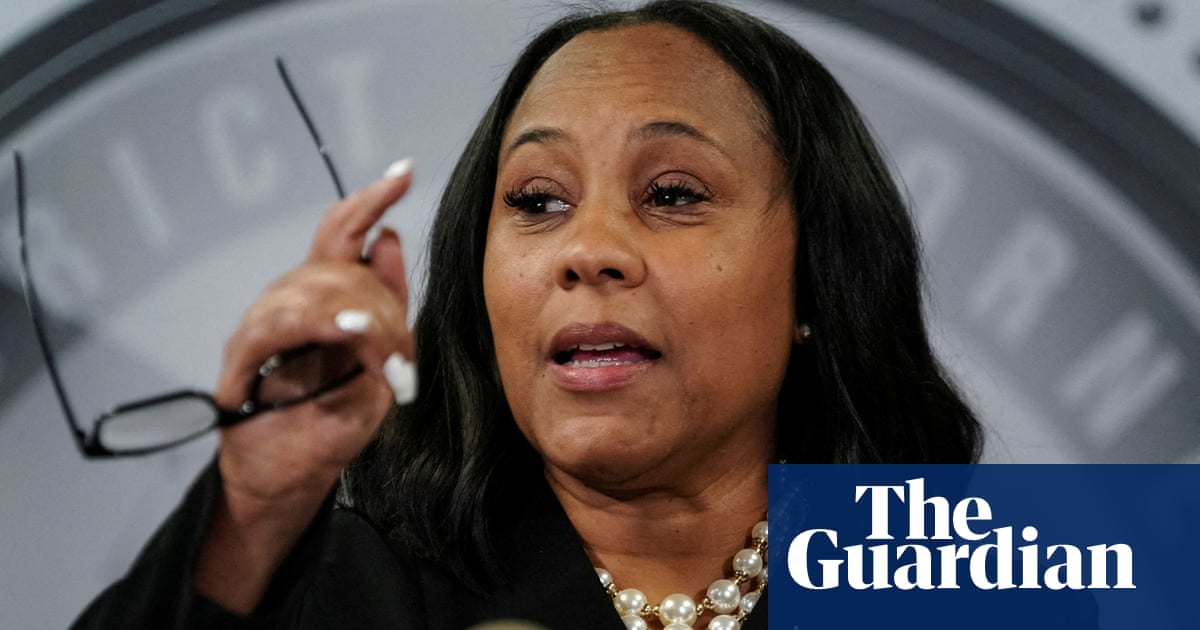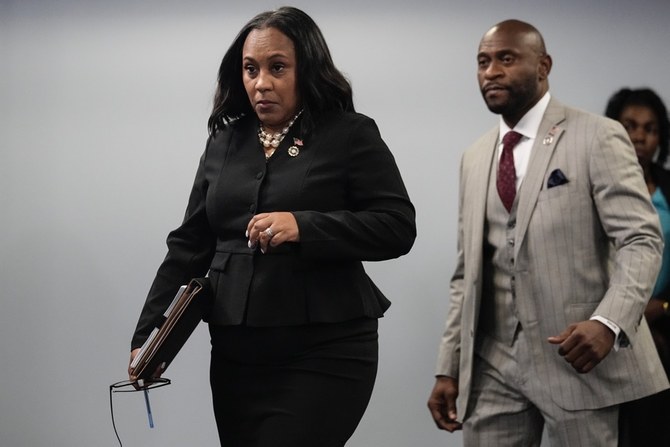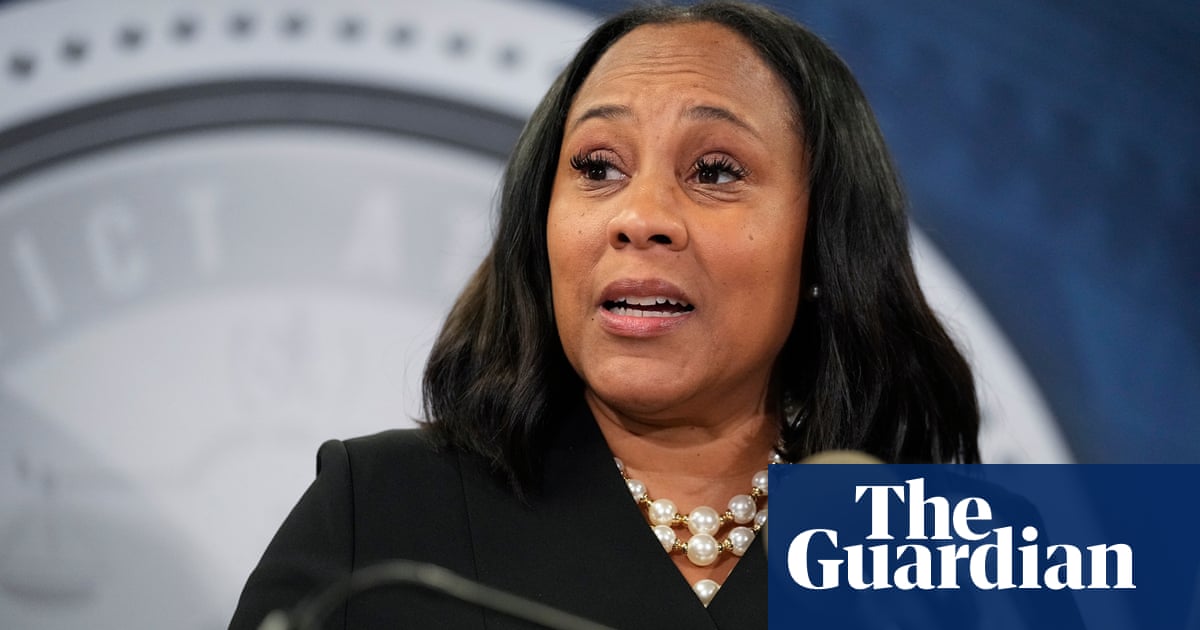
The Georgia judge overseeing the racketeering case charging Donald Trump and allies with attempting to overturn the 2020 election results in the state has scheduled a hearing for February to weigh whether the Fulton county district attorney should be disqualified from prosecuting the charges.
In a one-page order, the Fulton county superior judge Scott McAfee set an evidentiary hearing for 15 February to address allegations raised by Trump’s co-defendant Michael Roman that the district attorney Fani Willis had an improper romantic relationship with one of her prosecutors.
The judge also ordered the district attorney to file a response to the allegations by 2 February. Earlier this week, Willis’s office had privately told at least two lawyers involved in the case that they intended to submit their written response by that date, people familiar with the matter said.
The case is unlikely to be dismissed outright even if the allegations are proven true. But that could result in the disqualification of Willis, which, under Georgia law, would necessitate the disqualification of the entire Fulton county district attorney’s office, as well.
At issue is an explosive complaint from Roman – director of Trump’s 2020 election-day operations – that Willis should be relieved of bringing the case because of conflicts of interests arising from her ongoing relationship with a lawyer named Nathan Wade, whom she hired as a special prosecutor.
The filing claimed Willis personally profited from the contract. Wade was paid at least $653,000 and potentially as much as $1m for legal fees as one of the lead prosecutors on the Trump case, and the filing alleged Wade then paid for trips he took with Willis to Napa Valley and the Caribbean.
The filing included no proof of the allegations. Roman’s lawyer Ashleigh Merchant, a respected local attorney who publicly endorsed Wade when he ran to be a Cobb county superior judge 2016, has said the claims were based on sources and records from Wade’s divorce proceeding that remains under seal.
Wade started divorce proceedings the day after he was hired as a special prosecutor on the Trump case. According to court records, the divorce case has been contentious, and Joycelyn Mayfield Wade wrote that her husband had failed to disclose his finances, including from his Fulton county work.
For his part, Wade has repeatedly insisted in court filings that he had complied with the discovery obligations and accused his wife of being “stubbornly litigious and dragging the matter out for no stated reasons”.
Three days after Trump was indicted in Atlanta last August, the presiding Cobb county superior court judge Henry Thompson held Wade in contempt for failing to disclose financial statements, including bank and credit card statements.
Weeks later, Joycelyn Mayfield Wade said in a filing in September that she would be forced to subpoena records to obtain her husband’s earnings from legal work done for the Fulton county district attorney’s office and Fulton county in November and December respectively.
Willis herself was subpoenaed for testimony on 8 January, just hours before Roman filed his motion seeking dismissal of the charges and disqualification. The subpoena ordered her to appear for a 23 January video-taped deposition.
Willis has not directly addressed the allegations, and a spokesperson has said it would all be addressed in court filings.
Roman’s allegations threaten to upend one of the most consequential criminal cases against Trump, who pleaded not guilty to charges that he and his co-defendants violated the Georgia Rico statute through his efforts to reverse his 2020 election defeat.
Whether Willis, and therefore the district attorney’s office, can be disqualified from prosecuting the Trump case turns less on Wade’s credentials and more on the extent of a potential conflict of interest, legal experts said.
The standard for disqualification does not turn on whether Willis made prosecutorial decisions to benefit Wade, the experts said, but whether she made decisions to extend a criminal investigation actually benefited Wade, who was also paying for travel and vacations.
In 2022, the chief Fulton county superior court judge Robert McBurney disqualified the Fulton county district attorney’s office from prosecuting the Republican lieutenant governor Burt Jones after Willis endorsed his political opponent, Charlie Bailey.
The order from McBurney found that there was an “actual” conflict of interest because even though Jones might not have had definitive proof that “an investigative decision was made to benefit Bailey … any public criminal investigation into Jones plainly benefits Bailey’s campaign”.
Should McAfee ultimately decide to disqualify Fulton county, the Prosecuting Attorneys’ Council of Georgia would be tasked with deciding where the case would be transferred to. It could pursue the case itself, or give it to another district attorney’s office, which could choose to drop the charges.




